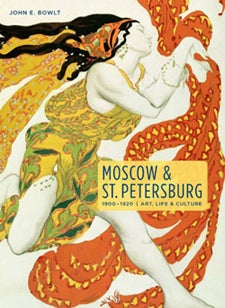President Medvedev Awards John Bowlt Friendship Order
John Bowlt, professor of Slavic languages and literatures in USC College, has been awarded the prestigious Russian Federation Order of Friendship.
Bowlt received the official certificate signed by Russian Federation President Dmitry Medvedev and medal for his major contributions in the development of cultural ties with the Russian Federation and for the preservation and promotion of Russian language and culture.
“It is indeed gratifying to receive such a high honor,” Bowlt said from Moscow where he is on research leave until the year’s end. “I have studied Russian art and literature for many years both during and after the Soviet era, and it’s a supreme compliment that the Russians themselves appreciate my efforts to recognize, understand and disseminate their extraordinary cultural accomplishments.”
Bowlt is director of the Institute of Modern Russian Culture (IMRC) based in the College and located in the historic Shrine building at the University Park campus.
He launched the private, nonprofit organization 31 years ago at the University of Texas at Austin and brought the institute with him when he joined the College in 1988. It had various temporary homes on campus until moving to the Shrine in 2007.
A comprehensive resource for faculty, graduate and undergraduate students, the institute houses collections involving the cultural history of Russia, particularly the visual arts and literatures during the 19th and 20th centuries. Bowlt obtained the Ferris Collection of Sovietica, a highlight in the collection. The more than 8,000 items, including paintings, sculptures, photographs, publications, banners and toys are among its collections unique to the Western world.
Other exceptional features include Russian book illustrations beginning in the 20th century, a history of book designs (for example, the collection of artist Marc Chagall’s book designs), satirical journals, a phonograph collection and original sound recordings of music and historic voices of Vladimir Lenin, Joseph Stalin and Leo Tolstoy.
In 2008, the family of Lev Ladyzhensky donated an expansive collection of poet and Doctor Zhivago author Boris Pasternak materials spanning more than a half-century.

Bowlt was also recognized for his book, Moscow & St. Petersburg 1900–1920: Art, Life, & Culture of the Russian Silver Age (Vendome Press, 2008), which has been translated into French and German.
In addition to his devotion to the institute, Bowlt was hailed for his book, Moscow & St. Petersburg 1900–1920: Art, Life, & Culture of the Russian Silver Age (Vendome Press, 2008), which has been translated into French and German, and soon will be available in Russian. The book is an elegantly written and quintessential guide to Russia’s Silver Age, a period of artistic renaissance that flourished as Imperial Russia’s power waned.
Bowlt’s richly textured volume focuses not only on Russia’s best known artists from this period — Diaghilev and the Ballets Russes, Igor Stravinsky, Anna Pavlova and poet Anna Akhmatova — but also on lesser known movements of the period — experimental theater, Nikolai Kalmakov’s innovative painting, and the free dance practiced by followers of Duncan and Dalcroze.
The medal attached to a green ribbon with light blue edges will be presented to Bowlt in an early 2011 formal ceremony in Moscow or Washington, D.C.